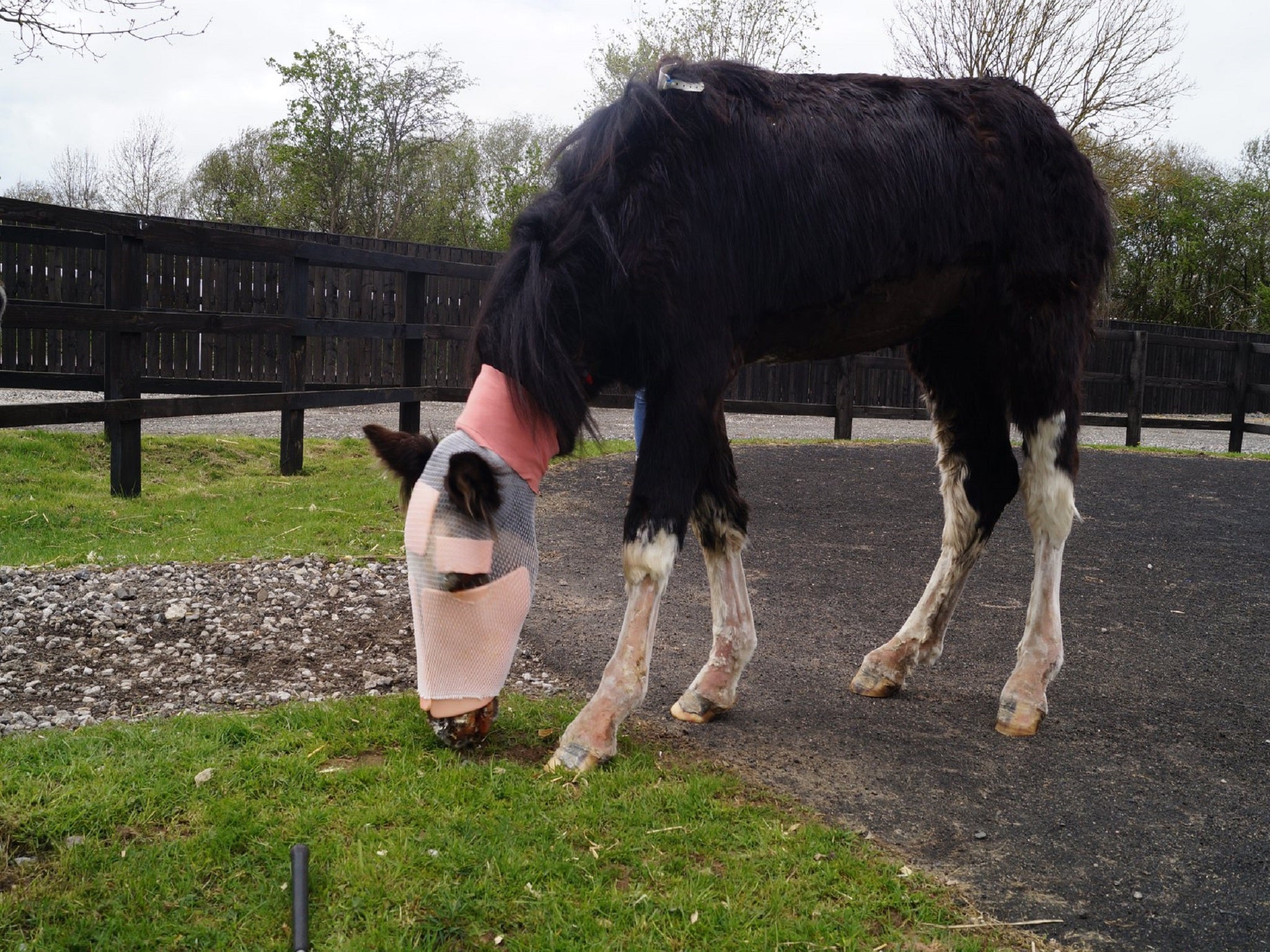Thousands more scientific experiments being carried out on horses despite overall fall in animal testing
Researchers subjected animals to 3.79m scientific procedures last year

Your support helps us to tell the story
From reproductive rights to climate change to Big Tech, The Independent is on the ground when the story is developing. Whether it's investigating the financials of Elon Musk's pro-Trump PAC or producing our latest documentary, 'The A Word', which shines a light on the American women fighting for reproductive rights, we know how important it is to parse out the facts from the messaging.
At such a critical moment in US history, we need reporters on the ground. Your donation allows us to keep sending journalists to speak to both sides of the story.
The Independent is trusted by Americans across the entire political spectrum. And unlike many other quality news outlets, we choose not to lock Americans out of our reporting and analysis with paywalls. We believe quality journalism should be available to everyone, paid for by those who can afford it.
Your support makes all the difference.Scientific testing on live animals has fallen to its lowest level this decade, but the number of laboratory experiments carried out on horses has increased sharply.
Researchers carried out 3.79 million procedures on animals in Britain last year, according to new Home Office statistics.
The figure is a decrease of four per cent since 2016 and the smallest number for eight years, but a four per cent rise compared to 10 years ago.
Horses were involved in 10,600 experiments in 2017, an increase of 18 per cent from the previous year, when there were 8,948.
The Home Office said this was “principally for the provision of blood products for diagnostic products”.
Professor Dominic Wells, chairman of the animal sciences group at the Royal Society of Biology, said the some horses may have been used multiple times for different procedures.
“The number of horses used for the first time in 2017 is reduced compared to 2016, but the number of procedures has gone up, and that’s because some of these horses are used as essentially blood donors,” he said.
Animal rights campaigners said the government was not doing enough to reduce testing on animals and called for greater investment in scientific methods which do not involve living creatures.
Hazel Jackson, science director of Animal Free Research UK, said: “This almost negligible decrease in the number of animal experiments is simply too little, too late.
“Instead of continuing to pump money into outdated, cruel and often misleading animal research, more needs to be done to invest in the UK’s expert researchers who are developing innovative, human-relevant methods which are best placed to discover treatments for debilitating human diseases.”
Of the 3.79 million scientific procedures, around half – 1.89 million – were experiments using animals to develop treatments, to test the safety of pharmaceuticals and chemicals, for surgical training and education, and for species protection.
The rest – 1.90 million - involved the creation and breeding of genetically modified animals, producing offspring for use in further experiments.
Mice, rats and fish accounted for 87 per cent of experimental procedures.
Experiments on mice fell 10 per cent from 1.22 million in 2016 to 1.09 million in 2017, while those involving rats decreased by two per cent
However there was an eight per cent rise in use of fish, from 287,000 in 2016 to 308,000 last year.
This was mainly due to the use of genetically modified zebrafish in basic research, according to the Home Office.
Cats, dogs, horses and non-human primates – described as “specially protected species” – were used in one per cent of experimental procedures last year.
The number of experiments with dogs fell by by more than a fifth from 4,932 in 2016 to 3,847 last year, while procedures involving cats rose slightly from 190 to 198.
Since 2014, the Home Office, which is responsible for regulating animal experiments, has classified testing according to the amount of suffering it causes.
Of the 1.89 million experiments performed on animals last year, 50 per cent were assessed as causing mild suffering, 26 per cent as moderate. and five per cent as severe.
Cruelty Free International said it was concerned that Britain’s departure from the European Union may lead to an increase in animal testing, with the UK potentially having to duplicate some tests.
Chief executive Michelle Thew said: “Brexit has the potential to be a real opportunity to demonstrate to the world that the UK is committed to making difference for animals by reducing the extent of suffering in our laboratories and replacing animals with modern, humane testing methods.
“The UK Government needs to step up and use this moment in history as a springboard to step up efforts to stop unnecessary animal experiments.”
Jan Creamer, president of the National Anti-Vivisection Society, said: “With advanced modern methods being more accurate and relevant than animal tests, the UK government must do more to encourage researchers to adopt their use. A shift in policy and end to the secrecy surrounding animal tests is urgently needed to enable science to save lives – better for people and animals.”
Join our commenting forum
Join thought-provoking conversations, follow other Independent readers and see their replies
Comments